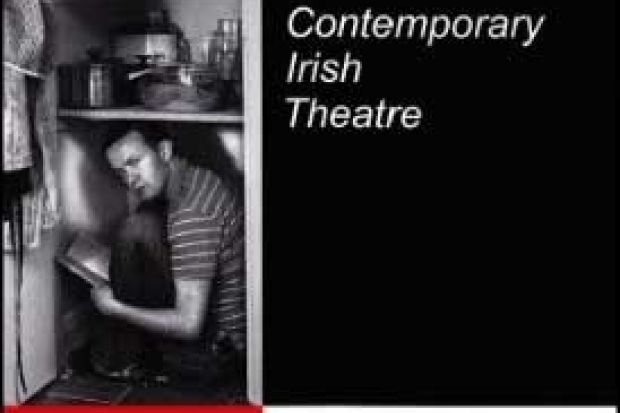Great plays ... tend to locate themselves at moments of severe transition, disintegration or dismantlement, when the overlap or interfaces between the individual and society and history are in flux ... The incisive loss of perceived core values and the emergence of new awareness ... help build the dramatic situation."
As I read Eamonn Jordan's words, priests were being summoned from Dublin to Rome by Pope Benedict XVI following an inquiry into child abuse in Irish dioceses over four decades. Once again the Catholic Church and its representatives were at the centre of media attention; yet this time it was a squalid matter of long-standing injustice that was finally being addressed. How will the scandal and its judicial outcome affect future Irish generations and their relationship with religious authorities? As one looks back to the nightmare that James Joyce's young artist sought to escape, one inevitably draws parallels and wonders whether change is possible, or whether Ireland remains subject to the whim of a malevolent fate.
Issues such as these are constantly pondered by the dramatists who engage with and dissent from ongoing debates through the powerful medium of theatre. The recession-stricken, post-Celtic Tiger nation provides a fertile ground for reflection, and it is precisely from this context that Jordan's Dissident Dramaturgies emerges.
Suspended between its contested past and a turbulent present, between economic downturn and dissolution and the promise and hope of the peace process in a global and multi-ethnic society, Jordan's Ireland, as seen via the dramatic works of the past 30 years, is the object of a meticulous analysis that takes into account scripts, mises en scene and responses both at home and in theatres around the world.
The book does not focus on the internationalism of Irish theatre, although its international acclaim is encompassed, but rather examines current patterns of dramaturgy that are discernible in a number of "great plays" written since 1980.
These patterns include history and memory (of both real and imagined pasts), meta-theatre (the play-within-the-play format), forms of innocence (naivety and violence), the enabling and disabling uses of myth, the pastoral (notional realism) and the use of narrative (specifically types of monologue). Each contributes to a dramaturgy that is "dissident" because it is contestational, confrontational and destabilising; and because it may be simultaneously "not conservative" and "perversely subversive in its conservatism".
Accessible to learned readers who know a bit of Irish history and the history of Irish drama (and more so if they have spent a few nights at the playhouse), Jordan's study begins with a comprehensive and essential account of Ireland's sociocultural background, which offers key reference points in following his argument. The author brings together literary, performance and reception theory. His extensive - indeed, quasi-religious - theatregoing and his clinical and scholarly eye afford readers the benefit of his insider insights into recent cultural and political transformations.
Jordan argues that Irish dramaturgy, like Irish identity, can no longer be defined in monolithic terms: there are multiple theatres as much as there are multiple identities. The common denominator is that these dramaturgies are dissident, whether they confront the canon (or common perceptions of it) or engage with it. Arguably, these are the most interesting sections of the book. A varied, careful and sometimes brave selection of plays, playwrights and performance pictures is presented, including both "big" names and those of young and emerging artists north and south of the border, whom Jordan deems likely to shape Irish theatre in the coming decades.
What emerges is a polyphony of creative forces at work in the cultural cauldron that is today's Ireland. Regardless of the country's sex scandals and economic travails, it's hard not to long to be there to observe it.
Dissident Dramaturgies: Contemporary Irish Theatre
By Eamonn Jordan
Irish Academic Press
7pp, £40.00 and £24.95
ISBN 9780716530138 and 30152
Published 30 October 2009
Register to continue
Why register?
- Registration is free and only takes a moment
- Once registered, you can read 3 articles a month
- Sign up for our newsletter
Subscribe
Or subscribe for unlimited access to:
- Unlimited access to news, views, insights & reviews
- Digital editions
- Digital access to THE’s university and college rankings analysis
Already registered or a current subscriber?
